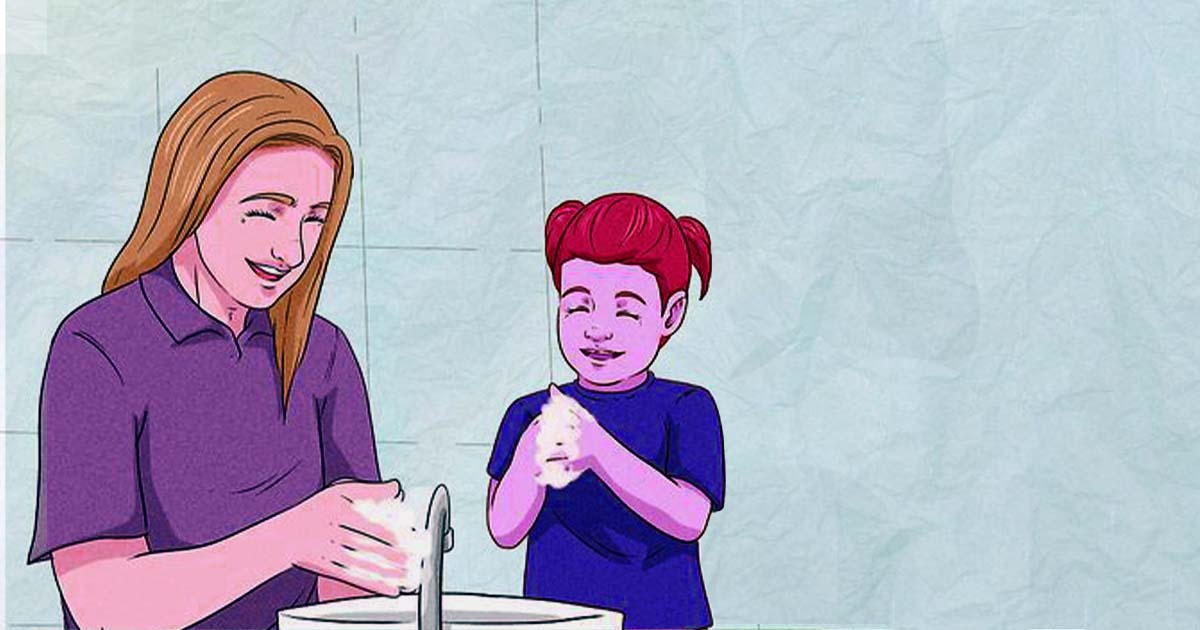Divorce can be a tough time for families, especially for children. When parents decide to go their separate ways, it can shake up a child’s world and leave them feeling confused, sad, or even scared. As parents, supporting children through divorce becomes that much more important for the mental health of our children.
In this article, we’ll explore the impact divorce can have on children and offer expert-backed tips on how parents can support their kids through this transition.
From maintaining open communication to creating new positive traditions, we’ll provide practical strategies aimed at helping families thrive despite the changes.
So, if you’re a parent going through a divorce or know someone who is, stick around for some valuable insights and helpful advice. Together, we can ensure that our children feel loved, supported, and resilient during this difficult chapter in their lives.
5 Alarming Impacts Of Divorce On Children
Divorce can have profound and lasting impacts on children, affecting their emotional, psychological, and sometimes physical well-being.
Here are five alarming impacts of divorce on children, supported by insights from experts in psychology, child development, and family studies:
1. Emotional Distress and Insecurity:
Children of divorced parents often experience significant emotional distress. They may feel a sense of loss, sadness, and confusion.
According to Dr. Robert Hughes Jr., a professor of Human Sciences at Ohio State University, children from divorced families may experience more externalizing problems, such as aggression and conduct disorders, as well as internalizing problems, such as anxiety and depression.
2. Academic and Behavioral Problems:
The upheaval and instability caused by divorce can lead to academic and behavioral problems in children.
Dr. Jennifer Jenkins, a professor of Human Development and Applied Psychology at the University of Toronto, notes that children may have difficulty concentrating in school. It can lead to declining grades and disinterest in academic achievement. Behavioral issues may also manifest as acting out in school or social settings.
3. Impaired Parent-Child Relationships:
Divorce can strain the relationships children have with their parents. Dr. Paul R. Amato, a professor of sociology and demography at Pennsylvania State University, emphasizes that divorce can lead to reduced involvement and emotional support from the non-custodial parent.
Losing a close relationship with one parent can have long-term effects on the child’s emotional health and future relationships. Learning the ways for supporting children through divorce can make all the difference here.
4. Increased Risk of Substance Abuse:
Research has shown that children from divorced families are at a higher risk of engaging in substance abuse. According to Dr. Elizabeth Karberg, a developmental psychologist specializing in family studies, the stress and emotional turmoil caused by divorce can lead children to seek comfort in alcohol, drugs, or other harmful behaviors as coping mechanisms.
It is therefore important that you do everything in your power to support children through divorce as it can mitigate these harmful impacts.
5. Long-Term Psychological and Emotional Effects:
The impact of divorce on children can extend into adulthood. Dr. Judith S. Wallerstein, a clinical psychologist conducted a 25-year study on the effects of divorce on children and the ways for supporting children through divorce.
Childhood experiences of parental divorce have been found to predict long-term problems, such as fear of commitment and relationship difficulties. Wallerstein’s research highlights the impact that divorce has on how individuals approach relationships and think about their own future families.
These impacts emphasize the need for support and stability for children during and after a divorce. Options like family therapy, counseling, and open communication can help reduce some of these harmful effects.
Try to work with your ex so you can both be there for the kids when they need you.
10 Helpful Ways For Supporting Children Through Divorce
Supporting children through a divorce requires careful attention and strategies aimed at minimizing stress and emotional pain.
Here are ten expert-backed ways for supporting children through divorce:
1. Ensure Open Communication:
Dr. JoAnne Pedro-Carroll emphasizes the importance of honest yet age-appropriate conversations about divorce. Children should feel safe to express their feelings and ask questions.
She advises parents to listen actively, acknowledge their children’s feelings, and provide answers that reassure them without overwhelming them with adult problems. This approach helps children understand they are not to blame for the divorce and that their feelings are valid and important.
2. Create a Consistent Routine
Keeping a regular routine can help ease children through the process of divorce, according to Dr. Carl Pickhardt. By keeping things as consistent as possible, such as meal times, sleep schedules and school activities, it gives them a sense of normalcy.
I cannot stress enough how important routine is when supporting children who are going through divorce.
A stable schedule in their daily life will help make this shift smoother by reducing anxiety and making them feel more secure.
3. Remind Them They Are Loved
Love is your most powerful tool when you’re supporting children who are going through divorce.
Both parents need to remind their kids that their love for them will never change no matter what happens between mom and dad, says Dr. Edward Teyber.
This reassurance helps fight feelings of abandonment and strengthens their self-worth. Additionally, it reminds them they are loved unconditionally by both parents.
4. Keep Conflicts Away from Children
Dr. Robert Emery cautions parents against exposing their children to legal, financial and emotional conflicts during the process of divorce. He explains that being privy to these arguments can cause anxiety or negative feelings towards themselves or others.
Instead, try to communicate discreetly about these matters so that your child doesn’t get caught up in the middle or used as a messenger for conflicts they aren’t involved with yet still affects them mentally.
Shielding children from adult issues will prevent any harm to their mental health while maintaining positive relationships with both parents.
5. Foster Relationships with Both Parents
As long as it’s safe and possible for all parties involved, Dr. Paul R. Amato recommends allowing children to maintain relationships with both parents after the process of divorce has ended. This ensures they continue receiving love and support from everyone around them which is crucial for development and well-being overall.
6. Seek Professional Support:
Enlisting the help of a therapist or counselor can provide children with a safe space to process their feelings, suggests Dr. Pedro-Carroll. Professional support can equip children with coping strategies to manage their emotions healthily.
Therapists specializing in child psychology and family dynamics can offer valuable guidance and support, supporting children through divorce.
7. Foster a Sense of Security:
According to Dr. Carl Pickhardt, creating a stable and secure environment is paramount. This involves not only maintaining routines but also ensuring that the child’s living conditions are stable and that they feel safe and protected.
A predictable home environment, free from unnecessary changes and disruptions, helps children feel more secure and less anxious about the future.
8. Promote Openness and Honesty:
Experts stress the importance of being open and honest with children about the changes happening in their family, within the bounds of age-appropriate discussions.
Providing children with clear, truthful explanations about the divorce helps them understand the situation better and reduces confusion and misinformation. Honesty builds trust, ensuring that children feel valued and respected during the family’s transition.
9. Emotional Needs:
Be on the lookout for emotional changes in your children as they adjust to their new lifestyle. Dr. Edward Teyber notes that it’s important to watch out for shifts in behavior, mood swings, or withdrawal from social activities.
The next step after spotting these signs is simple: address them. Whether you provide direct support or seek professional help, make sure your child receives the care they need to handle their emotions during this difficult time.
10. Create Positivity:
Think about building something bright and memorable that will last a lifetime for you and your child in this new world. New weekly activities or monthly outings are great ways to break the ice and form joyful memories together.
Implementing new traditions helps strengthen both child and parent’s bond by providing growth opportunities together.
If done right, these strategies will not only keep your children happy but also assist their mental health during and after a divorce. Stability, security, and continued parental love will always be key factors in helping guide your child through life’s rollercoasters; especially one this tough.
A Word From Mind Family
Going through a divorce is tough, especially for kids. Experts tell us that it can mess with their feelings and how they do in school. Research also says that it might affect how kids feel about themselves and their relationships when they grow up.
So, at Mind Family, we want to help parents help their kids through this hard time. We have provided you with effective methods you can use for supporting children through divorce.
The tips are simple, like talking openly with your kids, keeping things steady in their daily routine, and making sure they know you still love them a lot. Parents need to work together, even if they’re not together anymore, to make sure their kids feel safe and happy.
So, from Mind Family to you, we hope these tips make things a bit easier for your family during this tricky time.
Frequently Asked Questions (FAQs)
1. What are the impacts of divorce on children?
The impacts of divorce on children include emotional distress, academic decline, impaired parent-child relationships, increased risk of substance abuse, and long-term psychological effects like fear of commitment.
2. What are the ways for supporting children through divorce?
Ways for supporting children through divorce include open communication, maintaining routines, reassurance of love, shielding from conflict, encouraging relationships with both parents, seeking professional support, fostering security, promoting honesty, monitoring emotional needs, and creating new positive traditions.
3. Can children cope with divorce?
Yes, children can cope with divorce with support from parents. Open communication, stability, reassurance of love, professional guidance, and the creation of new positive traditions can help support children through divorce.


















Leave a Reply